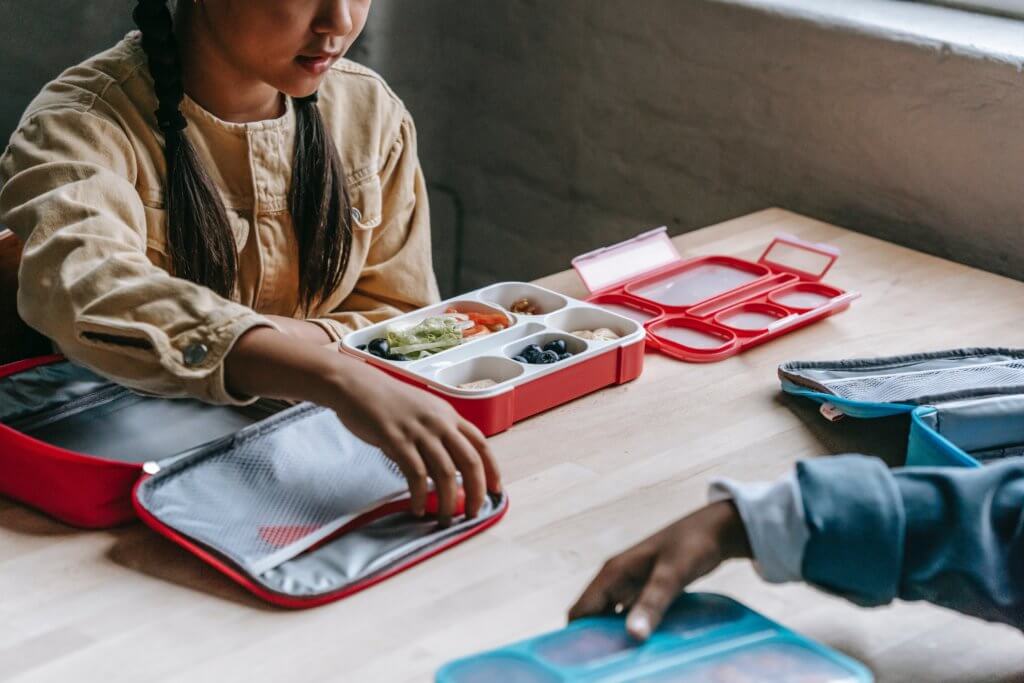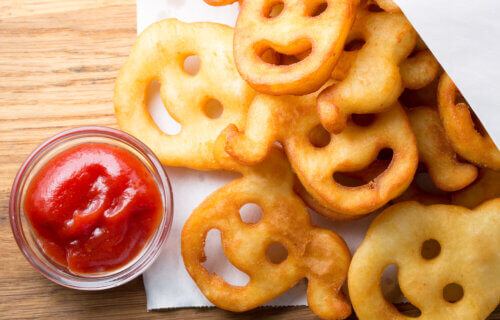PROVO, Utah — Want children to eat their vegetables? Add a potato to their plate. That’s what researchers from Brigham Young University (BYU) are saying in a new study.
School-age children only eat about one cup of vegetables daily, even though the Dietary Guidelines for Americans recommend kids consume two-and-a-half to three cups of veggies a day.
“That’s why we wanted to learn more about how school meal offerings may influence kids’ eating behavior and possibly encourage greater vegetable consumption,” says principal investigator Dr. Gene Ahlborn, associate professor in BYU’s Department of Nutrition, Dietetics and Food Science, in a media release.
The study discovered that children ate more vegetables when peas and carrots were served alongside potato-shaped smiley faces, indicating that presenting kid-friendly potato forms with other veggies could boost overall vegetable intake. These smiley faces, made from mashed potatoes and sunflower oil for a slightly crunchy exterior and soft interior, appeared to make a difference.
“Getting kids to eat their vegetables is always a challenge,” notes Dr. Ahlborn. “Potatoes not only add nutrients, like potassium, directly to the plate, but they may also help encourage kids to explore other veggies that they’re served alongside and thereby help them get closer to their overall nutrition needs.”

Researchers observed mealtime behaviors of seven to 13-year-olds in a cafeteria setting, evaluating how different potato presentations impacted vegetable consumption. When potato-shaped faces were served together with peas and carrots in the same bowl, children ate more total vegetables, reducing vegetable plate waste compared to control meals.
“This underscores the wide-reaching impacts of school menus. We want vegetables on school lunch trays to fuel kids’ bodies — not fill the trash can,” says Dr. Ahlborn.
While the study had strengths, such as real-time measurement of food intake and plate waste, it was limited in mimicking all aspects of a school cafeteria, missing factors like meal duration, timing concerning recess, and nutritional education impact during lunchtime.
The findings suggest that combining kid-friendly potato servings with other veggies not only improves students’ dietary habits but also aids in reducing food waste in school cafeterias.
The study is published in the journal Nutrients.
The research received funding from the Alliance for Potato Research & Education. The study authors note that funders did not play any role in the design, data collection, analysis, or interpretation of this research.
You might also be interested in:
- Vegetarian kids are twice as likely to be too skinny, study shows
- Best Instant Mashed Potatoes: Top 7 Mixes, According To Culinary Experts
- Sweet potato dreams: This prebiotic veggie helps babies sleep well, boosts their immune systems

